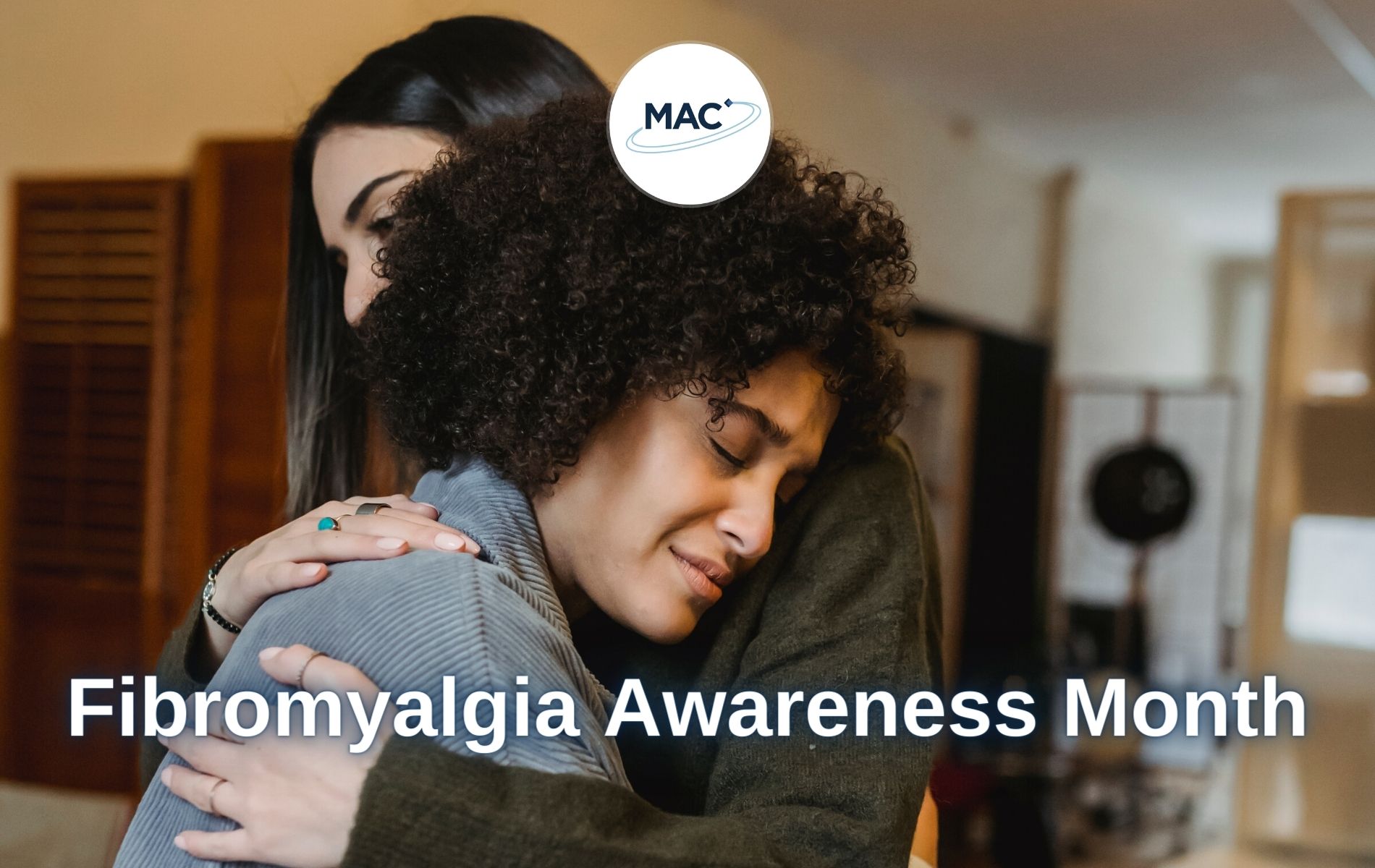May is Fibromyalgia Awareness Month, a time dedicated to raising understanding about this chronic pain condition. Fibromyalgia is a long-term disorder that affects around 2.5 million people in the UK alone.
Fibromyalgia Awareness Month provides an opportunity to educate the public and healthcare professionals about the condition and its impact. It is also a time to raise funds for research and support services for people with fibromyalgia.
Fibromyalgia is characterised by widespread pain, fatigue, and tenderness in various parts of the body. The severity of these symptoms can fluctuate – they can drastically improve suddenly or get worse.
The condition predominantly affects women with 90% of people living with fibromyalgia being females. Due to societal perceptions of fibromyalgia being a so-called ‘Women’s Disease’, it is often misunderstood leading to misdiagnosis, leading to years of distress for those living with the condition. Many people with fibromyalgia report experiencing symptoms for years before receiving a proper diagnosis, which can be frustrating and isolating.
In a 2022 study, researchers interviewed GP clinicians and found that: 3 out of 10 general practitioners report not diagnosing fibromyalgia due to levels of confidence in diagnosing, uncertainty about whether fibromyalgia is a distinct condition, and opinions that the diagnosis may not help patients. Many general practitioners interviewed stated that there is not much support for them to manage people with fibromyalgia in the community. This highlights the need for more understanding of fibromyalgia through further research into the condition and potential new medications that could more successfully treat fibromyalgia or ease the symptoms that can leave people feeling debilitated.
Fibromyalgia is a complex condition that can be challenging to treat, but early diagnosis and appropriate management can help to improve symptoms and enhance quality of life. There is no cure for fibromyalgia, but there are many treatment options available, including medications, physical therapy, and lifestyle changes.
The condition was formally categorised by Dr Hugh Smythe in the 1970s who first described the condition as generalised pain syndrome with fatigue, poor sleep, and tender spots or specific places/areas. The term as we know it today was not coined until 1976; fibromyalgia is comprised of the Latin “fibro” (connective tissues), “my” (muscle), “algia” (pain).
One of the most important steps in managing fibromyalgia is understanding the condition and its symptoms. Fibromyalgia is characterized by chronic pain, which can be felt throughout the body, and tenderness in specific areas known as trigger points. Other common symptoms include fatigue, sleep disturbances, headaches, and cognitive difficulties (brain fog) such as difficulty concentrating and memory problems. It can have a significant impact on a person’s daily life.
For people living with fibromyalgia, their symptoms are typically treated through exercise, talking therapies, and medications such as antidepressants or pregabalin. In 2007, pregabalin became the first FDA-approved treatment for the condition in the US. Research has found, however, that only 1 in 10 report a large drop in pain from pregabalin when living with moderate or severe fibromyalgia. In the UK, antidepressants such as amitriptyline and citalopram are sometimes prescribed to help relieve the pain of fibromyalgia.
Research into new treatments could improve the quality of life for those living with fibromyalgia, but researchers at MAC need your help in testing a potential new medication for the condition.
MAC are looking for male and female volunteers who:
- are aged 18 to 70
- have been diagnosed with fibromyalgia for at least 6 months
If eligible, participants may be able to continue the treatment they currently take for fibromyalgia during the trial period and will receive up to £3,050 for their time and commitment.
Transport to the MAC clinic or travel expenses are also provided. The study will run at our clinics in Greater Manchester, Lancashire (Blackpool), Merseyside, South Yorkshire, and Teesside.
To find out more about MAC Clinical Research’s fibromyalgia clinical trial and how you can help researchers trial potential new medications not yet available, visit our Fibromyalgia research webpage.




